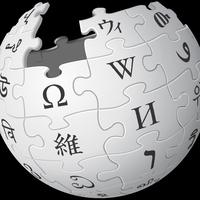Lingua latina - Historia: Aetas humanistica
Lateinische Sprache – Geschichte: Das humanistische Zeitalter
Latin language - History: The humanistic age
Lengua latina - Historia: La era humanista
Langue latine - Histoire : L'âge humaniste
Lingua latina - Storia: L'età umanistica
Język łaciński - Historia: Wiek humanizmu
Língua latina - História: A era humanista
Латинский язык - История: гуманистическая эпоха
Латинська мова - Історія: Гуманістична доба
拉丁语 - 历史:人文时代
Aetas humanistica
The age of the humanities
Aetas humanistica censetur ex saeculo quartodecimo incipere.
The age is considered to be in the humanities, from the world in the fourteenth to begin.
Post schismata protestantium, scholares humanistici conati sunt linguam Latinam convertere in linguam internationalem.
After the division of the protestors, humanities students have tried to study English language change in the international order.
Lingua Latina igitur hac aetate lingua quotidiana Ecclesiae Catholicae Romanae non tantum fuit, sed tamen scientiae, iuris, et litterarum.
So in this age of English language daily language of the Roman Catholic Church is not so great, but still science, law and literature.
Pleraque nominum et taxinomiae et biologiae, et iuris ex hac lingua (et Graeca) ducta sunt.
Many of the names and taxinomie and biology, and the code of these language (and Greek) drawn.
Describitur ergo ordo plantarum (id est florum herbarumque arborumque) et animalium adhuc Latine.
Describes the order of plants (ie flowers and trees) and animals is still Russian.
Nationalismus autem civitatum Europearum magnopere per hanc aetatem quoque auctus est, quod efficit ut civitas quaeque propriam linguam nationalem distinctamque petat: Britanniarum Regnum tandem linguam Anglicam habuit, Francia linguam Francogallicam, Hispania Hispanicam, Germania Theodiscam, Italia Italicam, etc.
Throughout this age the the cities that are very much of Europeans; it is, however, also be enhanced Nationalismus, which enables us to own tongue, in both the national and which distinct the city of desiring, with, with English as the United Kingdom had, at last, the tongue of the Francogallicam France, Spain, the Spanish, German, Germany, Italy, Italian Catholic Action, etc.,
Demum lingua Latina ut lingua franca internationalis omnino desinit, a lingua Francogallica dimota, post Rerum Francicarum eversionem, cum Francia revolutionem contra Ecclesiam Catholicam Romanam habuit, et imperium per continentem Europaeum extendit saeculo XVIII (duodevicesimo) sub Napoleone Bonaparte.
Finally, the Latin language ceases to be the international language, completely displaced from the French language after the French Revolution, when France had a revolution against the Roman Catholic Church, and extended its empire across the European continent in the eighteenth century (in the eighteenth century) under Napoleon Bonaparte.

